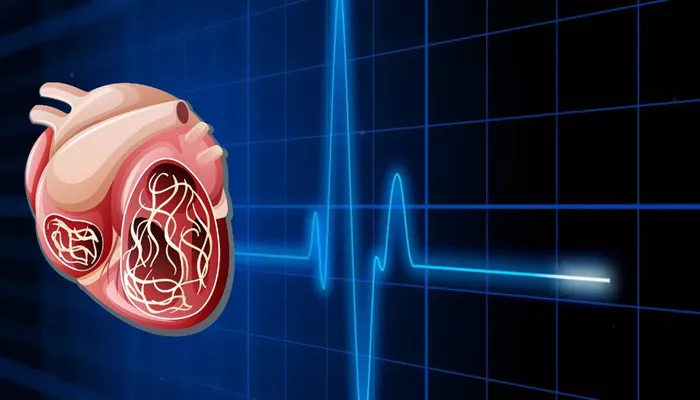Arrhythmia refers to an abnormal rhythm of the heart, which can manifest as a heartbeat that is too fast, too slow, or irregular. While arrhythmias primarily affect the heart, their impact can extend to various organs in the body due to the essential role the heart plays in pumping blood and ensuring adequate oxygen and nutrient delivery. This article delves into the different organs affected by arrhythmia disorders and the potential complications that can arise from these disturbances in heart rhythm.
Which Organs Are Affected by Arrhythmia Disorders?
1. The Heart: The Primary Organ Affected
The heart is the most directly affected organ in cases of arrhythmia. Arrhythmias can disrupt the heart’s ability to pump blood efficiently, leading to a range of symptoms and complications. Common types of arrhythmias include atrial fibrillation, ventricular tachycardia, and bradycardia, each impacting the heart’s function in different ways.
Atrial Fibrillation (AFib): This is a rapid, irregular beating of the atria, the heart’s upper chambers. It can lead to poor blood flow and increase the risk of stroke and heart failure.
Ventricular Tachycardia: This is a fast, regular beating of the ventricles, the heart’s lower chambers, which can be life-threatening if not treated promptly.
Bradycardia: This is an abnormally slow heart rate that can cause dizziness, fatigue, and fainting due to insufficient blood flow.
2. The Brain: Susceptible to Stroke and Cognitive Decline
The brain is highly sensitive to changes in blood flow and oxygen levels. Arrhythmias, particularly atrial fibrillation, significantly increase the risk of stroke. When the heart beats irregularly, blood can pool in the atria and form clots. These clots can travel to the brain, causing a stroke, which can result in permanent neurological damage or death.
Stroke: A stroke occurs when the blood supply to part of the brain is interrupted or reduced, preventing brain tissue from getting oxygen and nutrients. This can lead to cell death within minutes.
Cognitive Decline: Chronic arrhythmias can also contribute to cognitive decline. Studies have shown a correlation between prolonged AFib and an increased risk of dementia, possibly due to reduced cerebral blood flow and repeated small strokes.
see also: Which Human Organ Is Affected by Arrhythmia?
3. The Lungs: Impact on Oxygenation and Respiratory Function
Arrhythmias can affect the lungs by disrupting the heart’s ability to pump blood efficiently, leading to congestion and fluid buildup.
Pulmonary Edema: When the heart’s left ventricle fails to pump blood effectively, fluid can accumulate in the lungs, causing pulmonary edema. This condition can result in shortness of breath, wheezing, and coughing.
Reduced Oxygenation: In severe cases, arrhythmias can lead to a decrease in oxygen levels in the blood, compromising the body’s ability to function properly and exacerbating existing respiratory conditions.
4. The Kidneys: Compromised Filtration and Function
The kidneys rely on a consistent blood flow to filter waste products and excess fluids from the blood. Arrhythmias can impair this process, leading to kidney dysfunction and disease.
Reduced Blood Flow: Irregular heartbeats can reduce the amount of blood that reaches the kidneys, impairing their ability to filter waste effectively. This can result in the accumulation of toxins in the body.
Acute Kidney Injury: Severe arrhythmias can lead to sudden drops in blood pressure, causing acute kidney injury. This condition requires prompt medical intervention to prevent permanent damage.
5. The Liver: Risk of Congestion and Hepatic Dysfunction
The liver is another organ that can be affected by the blood flow changes caused by arrhythmias. The liver processes nutrients, detoxifies harmful substances, and produces essential proteins.
Congestive Hepatopathy: Chronic heart failure resulting from persistent arrhythmias can lead to congestive hepatopathy, where the liver becomes congested with blood. This can impair liver function and lead to symptoms such as jaundice and abdominal pain.
Hypoxic Liver Injury: Reduced blood flow to the liver can cause hypoxic liver injury, where liver cells are damaged due to a lack of oxygen. This can further compromise liver function and contribute to systemic health issues.
6. The Gastrointestinal Tract: Complications in Digestion and Absorption
Arrhythmias can also affect the gastrointestinal (GI) tract by altering blood flow and leading to a range of digestive issues.
Ischemic Bowel Disease: Reduced blood flow due to arrhythmias can lead to ischemic bowel disease, where parts of the intestines do not receive enough oxygen. This can cause severe abdominal pain, diarrhea, and in extreme cases, tissue death.
Gastrointestinal Bleeding: Patients with arrhythmias, particularly those on anticoagulant therapy to prevent stroke, are at an increased risk of gastrointestinal bleeding. This can lead to anemia and other complications if not managed properly.
7. The Muscles: Fatigue and Weakness
Skeletal muscles require a consistent supply of oxygen-rich blood to function properly. Arrhythmias can impair this supply, leading to muscle fatigue and weakness.
Reduced Exercise Tolerance: Individuals with arrhythmias often experience reduced exercise tolerance due to decreased blood flow to the muscles. This can manifest as early fatigue, muscle cramps, and overall weakness.
Peripheral Artery Disease: Chronic arrhythmias can contribute to the development of peripheral artery disease (PAD), where narrowed arteries reduce blood flow to the limbs. This can cause pain and limit physical activity.
Conclusion
Arrhythmia disorders, while primarily affecting the heart, have far-reaching consequences for multiple organs in the body.
The brain, lungs, kidneys, liver, gastrointestinal tract, and muscles can all experience significant complications due to disrupted blood flow and oxygen delivery. Understanding the impact of arrhythmias on these organs underscores the importance of early diagnosis and effective management to prevent severe health issues and improve overall quality of life for individuals with arrhythmia disorders.


